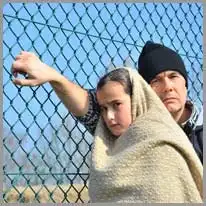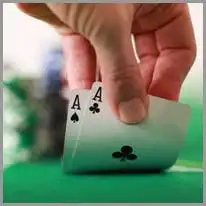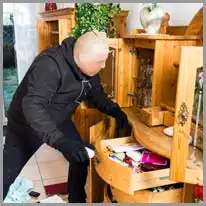Vocabulario
inglés (UK) – Ejercicio de verbos
-
 ES
español
ES
español
-
 AR
árabe
AR
árabe
-
 DE
alemán
DE
alemán
-
 EN
inglés (US)
EN
inglés (US)
-
 ES
español
ES
español
-
 FR
francés
FR
francés
-
 IT
italiano
IT
italiano
-
 JA
japonés
JA
japonés
-
 PT
portugués (PT)
PT
portugués (PT)
-
 PT
portugués (BR)
PT
portugués (BR)
-
 ZH
chino (simplificado)
ZH
chino (simplificado)
-
 AD
adigué
AD
adigué
-
 AF
africaans
AF
africaans
-
 AM
amhárico
AM
amhárico
-
 BE
bielorruso
BE
bielorruso
-
 BG
búlgaro
BG
búlgaro
-
 BN
bengalí
BN
bengalí
-
 BS
bosnio
BS
bosnio
-
 CA
catalán
CA
catalán
-
 CS
checo
CS
checo
-
 DA
danés
DA
danés
-
 EL
griego
EL
griego
-
 EO
esperanto
EO
esperanto
-
 ET
estonio
ET
estonio
-
 FA
persa
FA
persa
-
 FI
finlandés
FI
finlandés
-
 HE
hebreo
HE
hebreo
-
 HI
hindi
HI
hindi
-
 HR
croata
HR
croata
-
 HU
húngaro
HU
húngaro
-
 HY
armenio
HY
armenio
-
 ID
indonesio
ID
indonesio
-
 KA
georgiano
KA
georgiano
-
 KK
kazajo
KK
kazajo
-
 KN
canarés
KN
canarés
-
 KO
coreano
KO
coreano
-
 KU
kurdo (kurmanyi)
KU
kurdo (kurmanyi)
-
 KY
kirguís
KY
kirguís
-
 LT
lituano
LT
lituano
-
 LV
letón
LV
letón
-
 MK
macedonio
MK
macedonio
-
 MR
maratí
MR
maratí
-
 NL
neerlandés
NL
neerlandés
-
 NN
nynorsk
NN
nynorsk
-
 NO
noruego
NO
noruego
-
 PA
panyabí
PA
panyabí
-
 PL
polaco
PL
polaco
-
 RO
rumano
RO
rumano
-
 RU
ruso
RU
ruso
-
 SK
eslovaco
SK
eslovaco
-
 SL
esloveno
SL
esloveno
-
 SQ
albanés
SQ
albanés
-
 SR
serbio
SR
serbio
-
 SV
sueco
SV
sueco
-
 TA
tamil
TA
tamil
-
 TE
telugu
TE
telugu
-
 TH
tailandés
TH
tailandés
-
 TI
tigriña
TI
tigriña
-
 TL
tagalo
TL
tagalo
-
 TR
turco
TR
turco
-
 UK
ucraniano
UK
ucraniano
-
 UR
urdu
UR
urdu
-
 VI
vietnamita
VI
vietnamita
-
-
 EN
inglés (UK)
EN
inglés (UK)
-
 AR
árabe
AR
árabe
-
 DE
alemán
DE
alemán
-
 EN
inglés (US)
EN
inglés (US)
-
 EN
inglés (UK)
EN
inglés (UK)
-
 FR
francés
FR
francés
-
 IT
italiano
IT
italiano
-
 JA
japonés
JA
japonés
-
 PT
portugués (PT)
PT
portugués (PT)
-
 PT
portugués (BR)
PT
portugués (BR)
-
 ZH
chino (simplificado)
ZH
chino (simplificado)
-
 AD
adigué
AD
adigué
-
 AF
africaans
AF
africaans
-
 AM
amhárico
AM
amhárico
-
 BE
bielorruso
BE
bielorruso
-
 BG
búlgaro
BG
búlgaro
-
 BN
bengalí
BN
bengalí
-
 BS
bosnio
BS
bosnio
-
 CA
catalán
CA
catalán
-
 CS
checo
CS
checo
-
 DA
danés
DA
danés
-
 EL
griego
EL
griego
-
 EO
esperanto
EO
esperanto
-
 ET
estonio
ET
estonio
-
 FA
persa
FA
persa
-
 FI
finlandés
FI
finlandés
-
 HE
hebreo
HE
hebreo
-
 HI
hindi
HI
hindi
-
 HR
croata
HR
croata
-
 HU
húngaro
HU
húngaro
-
 HY
armenio
HY
armenio
-
 ID
indonesio
ID
indonesio
-
 KA
georgiano
KA
georgiano
-
 KK
kazajo
KK
kazajo
-
 KN
canarés
KN
canarés
-
 KO
coreano
KO
coreano
-
 KU
kurdo (kurmanyi)
KU
kurdo (kurmanyi)
-
 KY
kirguís
KY
kirguís
-
 LT
lituano
LT
lituano
-
 LV
letón
LV
letón
-
 MK
macedonio
MK
macedonio
-
 MR
maratí
MR
maratí
-
 NL
neerlandés
NL
neerlandés
-
 NN
nynorsk
NN
nynorsk
-
 NO
noruego
NO
noruego
-
 PA
panyabí
PA
panyabí
-
 PL
polaco
PL
polaco
-
 RO
rumano
RO
rumano
-
 RU
ruso
RU
ruso
-
 SK
eslovaco
SK
eslovaco
-
 SL
esloveno
SL
esloveno
-
 SQ
albanés
SQ
albanés
-
 SR
serbio
SR
serbio
-
 SV
sueco
SV
sueco
-
 TA
tamil
TA
tamil
-
 TE
telugu
TE
telugu
-
 TH
tailandés
TH
tailandés
-
 TI
tigriña
TI
tigriña
-
 TL
tagalo
TL
tagalo
-
 TR
turco
TR
turco
-
 UK
ucraniano
UK
ucraniano
-
 UR
urdu
UR
urdu
-
 VI
vietnamita
VI
vietnamita
-

sell
The traders are selling many goods.
vender
Los comerciantes están vendiendo muchos productos.

jump around
The child is happily jumping around.
saltar
El niño salta felizmente.

limit
Fences limit our freedom.
limitar
Las vallas limitan nuestra libertad.

walk
The group walked across a bridge.
caminar
El grupo caminó por un puente.

mention
The boss mentioned that he will fire him.
mencionar
El jefe mencionó que lo despedirá.

refer
The teacher refers to the example on the board.
referir
El profesor se refiere al ejemplo en la pizarra.

think along
You have to think along in card games.
pensar junto
Tienes que pensar junto en los juegos de cartas.

stand up
She can no longer stand up on her own.
levantarse
Ya no puede levantarse por sí misma.

deliver
Our daughter delivers newspapers during the holidays.
entregar
Nuestra hija entrega periódicos durante las vacaciones.

wake up
The alarm clock wakes her up at 10 a.m.
despertar
El despertador la despierta a las 10 a.m.

avoid
He needs to avoid nuts.
evitar
Él necesita evitar las nueces.

